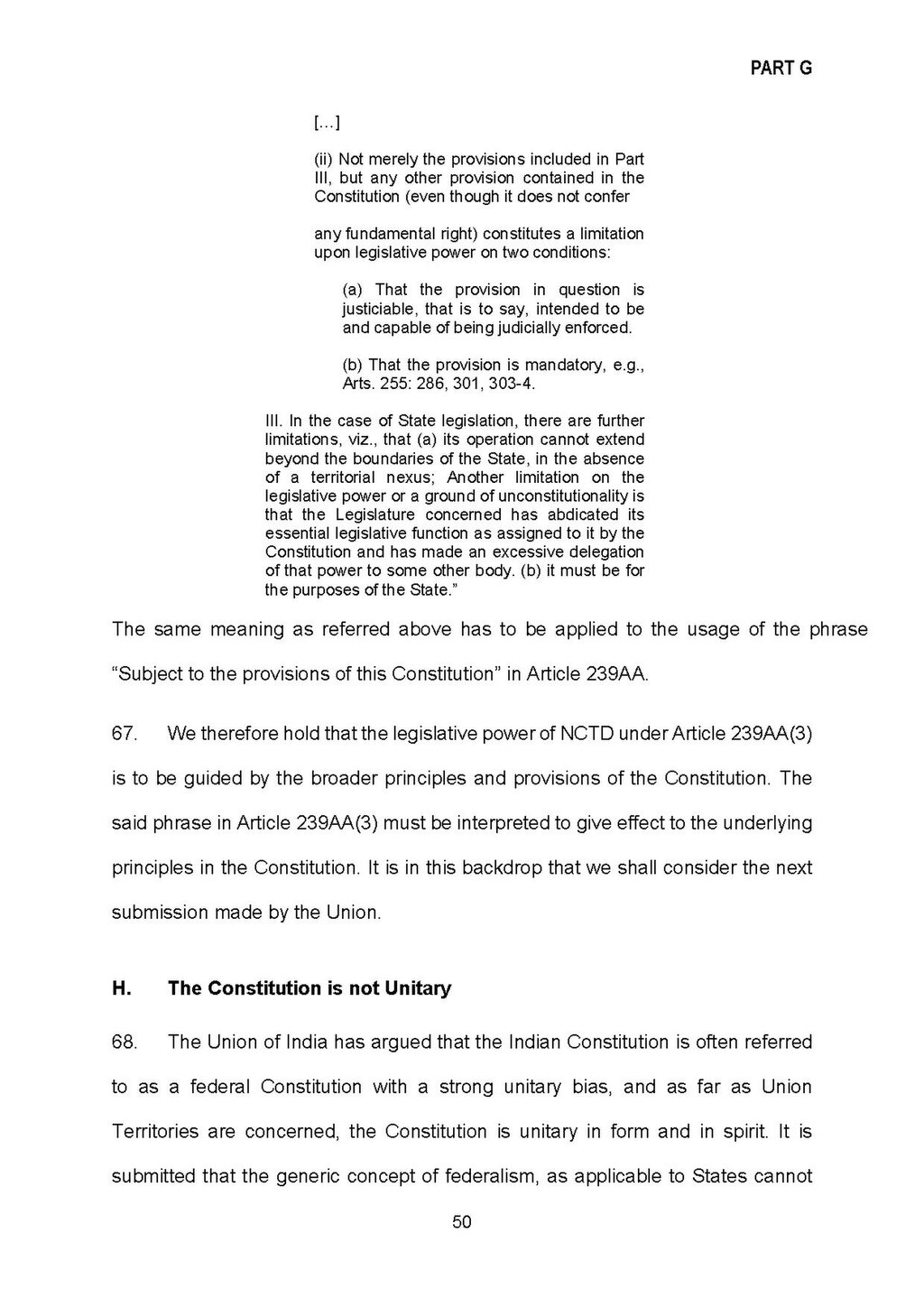[…](ii) Not merely the provisions included in Part III, but any other provision contained in the Constitution (even though it does not confer any fundamental right) constitutes a limitation upon legislative power on two conditions:
(a) That the provision in question is justiciable, that is to say, intended to be and capable of being judicially enforced.
(b) That the provision is mandatory, e.g., Arts. 255: 286, 301, 303-4.
III. In the case of State legislation, there are further limitations, viz., that (a) its operation cannot extend beyond the boundaries of the State, in the absence of a territorial nexus; Another limitation on the legislative power or a ground of unconstitutionality is that the Legislature concerned has abdicated its essential legislative function as assigned to it by the Constitution and has made an excessive delegation of that power to some other body. (b) it must be for the purposes of the State.”
The same meaning as referred above has to be applied to the usage of the phrase “Subject to the provisions of this Constitution” in Article 239AA.
67. We therefore hold that the legislative power of NCTD under Article 239AA(3) is to be guided by the broader principles and provisions of the Constitution. The said phrase in Article 239AA(3) must be interpreted to give effect to the underlying principles in the Constitution. It is in this backdrop that we shall consider the next submission made by the Union.
68. The Union of India has argued that the Indian Constitution is often referred to as a federal Constitution with a strong unitary bias, and as far as Union Territories are concerned, the Constitution is unitary in form and in spirit. It is submitted that the generic concept of federalism, as applicable to States cannot
50
